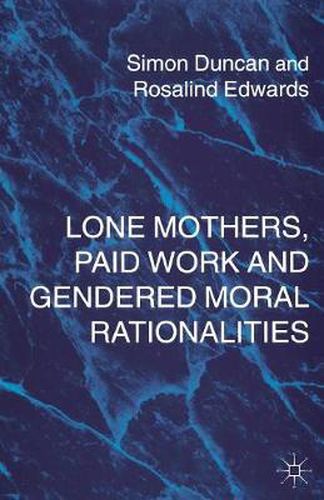Readings Newsletter
Become a Readings Member to make your shopping experience even easier.
Sign in or sign up for free!
You’re not far away from qualifying for FREE standard shipping within Australia
You’ve qualified for FREE standard shipping within Australia
The cart is loading…






This title is printed to order. This book may have been self-published. If so, we cannot guarantee the quality of the content. In the main most books will have gone through the editing process however some may not. We therefore suggest that you be aware of this before ordering this book. If in doubt check either the author or publisher’s details as we are unable to accept any returns unless they are faulty. Please contact us if you have any questions.
Why are most British lone mothers unemployed? And is welfare to work the right sort of policy response? This work provides an in-depth analysis of how lone mothers negotiate the relationship between motherhood and paid work. Combining qualitative and quantitative data, it focuses on social capital in different neighbourhoods, local labour markets and welfare states. Criticizing conventional economic theories of decision making, it posits an alternative concept of gendered moral rationality , and sets up new frameworks for understanding national policy differences and discourses about lone motherhood.
$9.00 standard shipping within Australia
FREE standard shipping within Australia for orders over $100.00
Express & International shipping calculated at checkout
This title is printed to order. This book may have been self-published. If so, we cannot guarantee the quality of the content. In the main most books will have gone through the editing process however some may not. We therefore suggest that you be aware of this before ordering this book. If in doubt check either the author or publisher’s details as we are unable to accept any returns unless they are faulty. Please contact us if you have any questions.
Why are most British lone mothers unemployed? And is welfare to work the right sort of policy response? This work provides an in-depth analysis of how lone mothers negotiate the relationship between motherhood and paid work. Combining qualitative and quantitative data, it focuses on social capital in different neighbourhoods, local labour markets and welfare states. Criticizing conventional economic theories of decision making, it posits an alternative concept of gendered moral rationality , and sets up new frameworks for understanding national policy differences and discourses about lone motherhood.